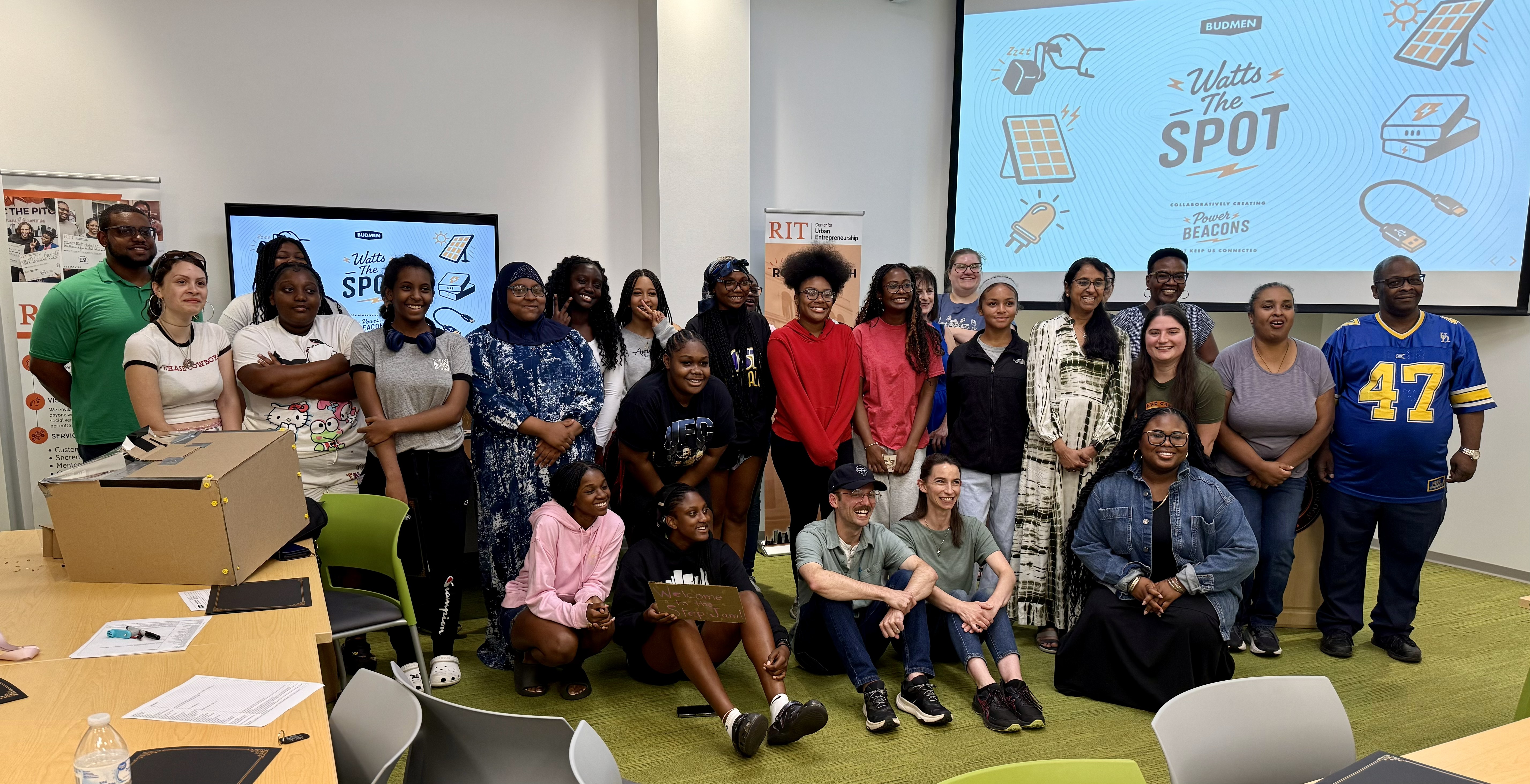
For eight Saturdays this summer, through the Energy Storage Engine in Upstate New York, a group of middle and high school students in Rochester, N.Y., came together to do something different. Instead of spending weekends on their phones or at the park, they built solar cars, wired circuits and talked about real-world challenges in science and engineering.
By the time the program wrapped with a weeklong residential experience at SUNY Broome, the students had gained more than technical know-how. They left with new friends, fresh perspectives and a boost in confidence about their futures. Michelle Gano, YWCA youth case manager, saw those changes up close. She worked with students daily, helping them navigate challenges in the lab and on campus. “For the middle schoolers, it was about more than science,” Gano said. “A lot of these kids are from inner city schools and don’t always see people who look like them in these fields. Being in a space with peers who share similar backgrounds and interests showed them they have a place in STEM. It gave them the chance to solve problems together, learn how to work as a team and see that there are bigger opportunities out there.”
For Netsi Gebregzibher, who coordinated the program, the goal was simple. “It’s about giving kids a chance to work with their hands and see the kinds of jobs and technologies that are shaping the future,” Gebregzibher said. “If they can see it, they can imagine themselves in it.”
For the high school students, the trip to SUNY Broome was a turning point. They spent the week in college labs, visiting companies like Toyota and BAE, and meeting faculty and STEM professionals. “We had girls who had never considered engineering before come back saying, ‘I can see myself doing this,’” Gano said. “Others started looking at schools they had never heard of. It was about building confidence to take up space in male-dominated fields and showing them they have the talent to succeed.”
Parents noticed the difference, too. Jonique Harris, whose daughter Dior participated, said the experience helped her shy teenager step out of her comfort zone.
“She was hesitant at first, but then she would come home excited, telling me about being the first group to power a battery,” Harris said. “She started talking about college majors she had never considered before. It was life-changing for her to see what is possible.”
For Na’imah Anderson, the program opened her daughter Kahlia’s eyes to new possibilities in science. “We are a college-going family, but I wanted her to have the chance to experience college life early,” Anderson said. “Even for me, it was eye-opening to learn about fields I didn’t know much about. If kids don’t know these opportunities exist, they can’t aim for them.”
“Seeing the program through to the end and knowing it sparked something in these kids is so empowering,” said Jessica Burt, YWCA mission impact coordinator. “Opportunities like this help students picture themselves in science and technology careers, and that vision can help bring these minds into the field to advance science and technology.”
The program’s mix of hands-on projects, teamwork and college exposure created an environment where students could imagine themselves in roles they might not have thought possible. Whether they were learning how solar panels track the sun or designing a hand-crank phone charger for emergencies, they were developing problem-solving skills and gaining a clearer sense of what they could achieve.
Gano believes that is the real power of programs like this. “It is about connecting kids to each other, to mentors and to opportunities,” she said. “Even if they are not sure about a STEM career yet, they are walking away knowing they are capable, that their ideas matter and that there is a community ready to support them.”
About the NSF Energy Storage Engine in Upstate New York
The NSF Energy Storage Engine in Upstate New York, led by Binghamton University, is a National Science Foundation-funded, place-based innovation program. The coalition of 40+ academic, industry, nonprofit, state, and community organizations includes Cornell University, Rochester Institute of Technology, Syracuse University, Griffiss Institute, Launch-NY and NY-BEST as core partners. The Engine advances next-gen battery technology development and manufacturing to drive economic growth and bolster national security. Its vision is to transform upstate New York into America’s Battery Capital.
Contact:
Dr. Myra Henry
Regional Engagement Pillar Director
NSF Upstate New York Energy Storage Engine




